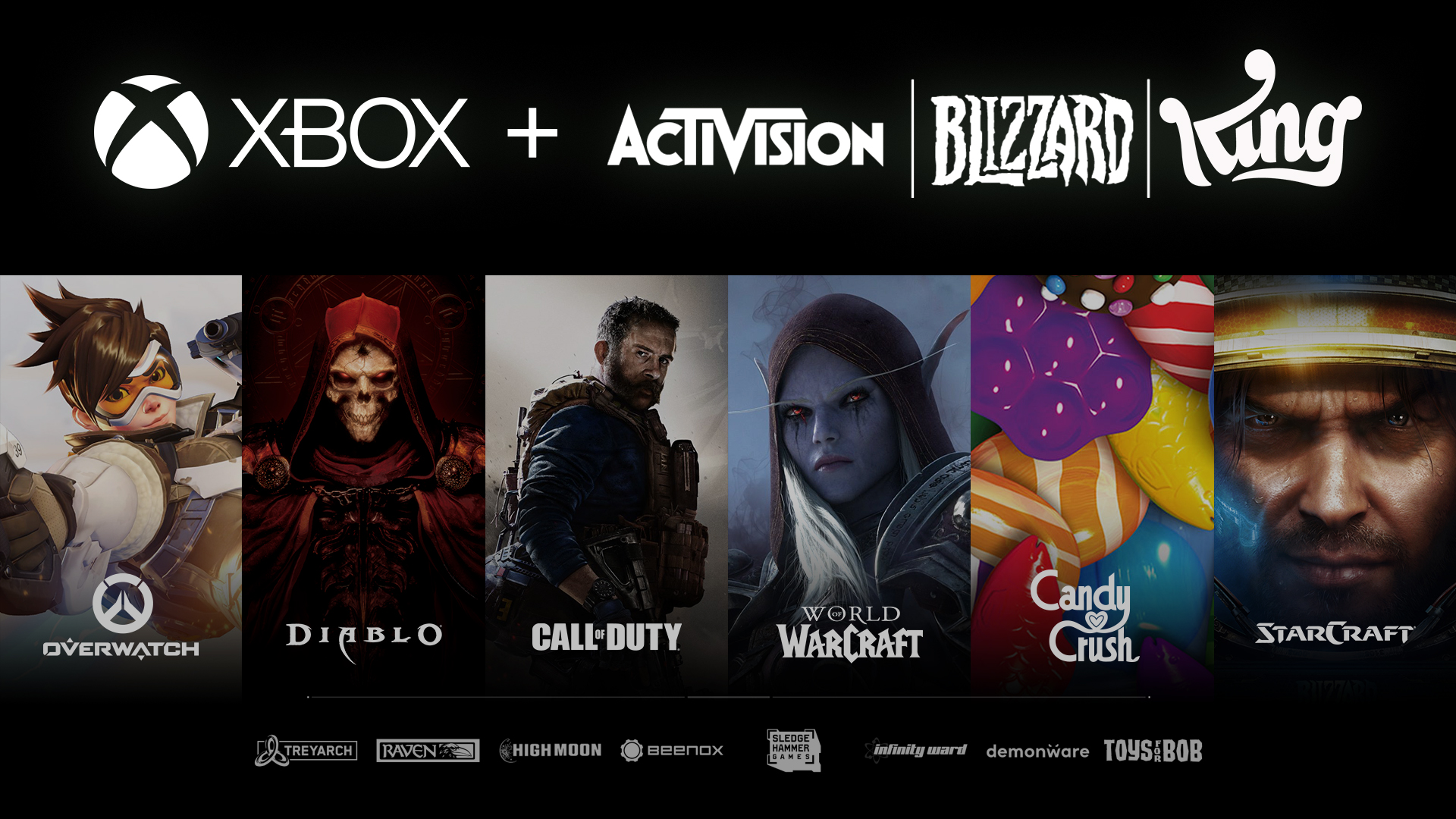Products You May Like
As The Beat reported yesterday, Xbox is in the process of acquiring video game publisher Activision-Blizzard early for a staggering $68.7 billion, pending SEC approval. To put that in perspective, that’s 17 times the amount Disney paid for Marvel. Microsoft’s move has gigantic reverberations for all of video games. Let’s look at whom the acquisition effects, and how. Here are some of the ways the acquisition will impact Xbox, Activision-Blizzard, and the video game industry as a whole.
Xbox

Microsoft has sold about as many of the Xbox Series as Sony has sold PlayStation 5’s, but that’s mainly because they’re both selling out of every console they can manufacture, which is constrained due to the chip shortage. Judging by what they’re going for secondhand on eBay, demand if higher for the new PlayStation than the Xbox, which makes sense. Microsoft stopped sharing sales numbers for the Xbox One, but we know the PlayStation 4 outsold it by a considerable degree. The Sony first-party lineup has a lot of fans, and despite improved output from Microsoft’s studios and other recent acquisitions, Microsoft’s lineup hasn’t engendered the same amount of support.
The Activision-Blizzard acquisition could change that, especially if the games are exclusive to Xbox. Sony is the undisputed champion of third-party action-adventures, but the addition of Call of Duty to its lineup gives Microsoft a near-monopoly on non-battle royale first-person shooters. One often overlooked reason for the PlayStation 4’s success is Sony’s marketing deal with the military shooter, which has included content exclusive to the platform. Call of Duty is arguably the biggest franchise in gaming. The annual release is usually the bestselling video game of the year, and battle royale Call of Duty Warzone an even bigger profit driver for Activision-Blizzard.
Between Call of Duty, Halo, and DOOM, Xbox will be the undisputed home to AAA shooters following the acquisition. That makes it much harder for even PlayStation diehards not to buy an Xbox. Unless, that is, Sony agrees to offer Game Pass through PlayStation. Microsoft’s subscription service, which just hit 25 million subscribers, has become the center point of Xbox’s business strategy, and CEO of Microsoft Gaming Phil Spencer has said that he wants Game Pass available everywhere. The biggest upside Xbox sees in the Activision-Blizzard acquisition may be in how it maximizes pressure on its biggest rival to make the subscription service available to PlayStation’s audience.
If Microsoft does get Game Pass on PlayStation, it successfully expands the reach of the subscription service to tens of millions of new consumers. But even if it doesn’t, and Xbox becomes the exclusive home to Call of Duty and the rest of Activision-Blizzard’s portfolio, Microsoft dramatically increases consumer interest in the Xbox. It’s a win-win.
Activision-Blizzard

The company behind Call of Duty, Diablo, Overwatch, and other valuable IP has had a rough go of it lately. The Blizzard side of the operation recently came under fire for sexual harassment allegations serious enough for the publisher to be under investigation by the State of California. Soon after, the Wall-Street Journal reported that CEO Bobby Kotick had known about the misconduct for years and shared a history of Kotick’s own despicable behavior. That controversy is likely one reason Activision-Blizzard was willing to sell. Unfortunately, an acquisition serves as an escape hatch of sorts for Kotick, who will reportedly be stepping down once the acquisition is complete, instead of resigning in disgrace following the many calls for him to be fired.
The acquisition is likely to be a good thing for Activision-Blizzard employees. Instead of staying under the reportedly hostile working conditions of Activision-Blizzard, they’ll work for Xbox, which by all appearances promotes a healthy work environment, despite known issues at its parent company.
One downside is the acquisition could impede efforts by Activision-Blizzard employees to form a union, which, if successful, would be historic for the video game industry. Organizers say it won’t stop them, but the news certainly complicates matters.
The industry

While the Activision-Blizzard acquisition will do some good, like remove the publisher’s toxic leadership, corporate consolidation carries its own risks for any industry. Consolidation reduces competition, putting even more power in the hands of the executives at the top. That can lead to worse workplace conditions, lower pay, and less innovation in the market. None of that is guaranteed, but it’s certainly something reporters and industry analysts need to look out for.
PlayStation will almost certainly have to respond with a major acquisition or two of its own. Despite the immense success it enjoyed over the last generation, Sony can’t sit on its laurels in the face of such aggressive moves from its main rival. Sony’s pockets aren’t nearly as deep as Microsoft’s, so it probably can’t afford to purchase a publisher on the same level as Activision-Blizzard. But it may go after a slightly smaller publisher, possibly Square Enix, given the existing relationship between the two companies. An acquisition like that would make it even harder for gamers to stick with just one console, making the hobby more expensive for the everyday consumer, another potential downside of consolidation.
This piece only scratches the surface of what will or could come out of the Activision-Blizzard acquisition. This is the biggest video game news in years, if not decades, and there’s a lot more to learn in the days, weeks, and months to come.
